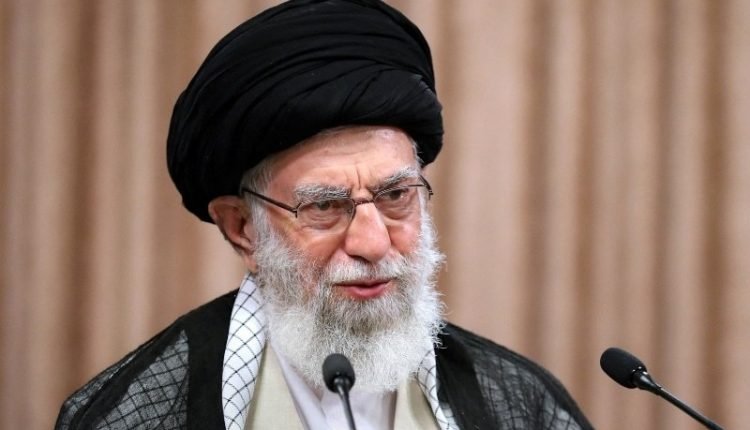Dr Sarfraz Nazeer
Climate-resilient economic policies encompass a range of measures designed to enhance a country’s ability to withstand and recover from the impacts of climate change while promoting sustainable economic growth. These policies are crucial in addressing the escalating environmental challenges and their subsequent economic ramifications. By prioritizing climate resilience in economic policies, countries can proactively prepare for and mitigate the adverse effects of climate change, ensuring long-term economic stability and sustainable development.
One of the key components of climate-resilient economic policies is the promotion of renewable energy sources and sustainable infrastructure. Shifting away from fossil fuel-based energy production and investing in renewable energy not only reduces carbon emissions but also builds energy security and lessens dependency on volatile global energy markets. Sustainable infrastructure, including climate-resilient buildings and transportation systems, helps minimize the economic disruptions caused by extreme weather events and natural disasters, ultimately contributing to long-term economic stability.
Furthermore, climate-resilient economic policies involve enhancing adaptive capacity and disaster risk management. This includes investing in early warning systems, building and upgrading flood defenses, and implementing drought-resistant agricultural practices. By bolstering adaptive capacity and disaster risk management, countries can minimize the economic impact of climate-related events, safeguard critical infrastructure, and protect livelihoods, thereby fostering economic resilience in the face of environmental challenges.
In addition, integrating climate considerations into fiscal and monetary policies is essential for building climate resilience. This involves aligning budget allocations with climate mitigation and adaptation goals, implementing carbon pricing mechanisms, and incentivizing climate-friendly investments through monetary policy measures. By incorporating climate considerations into fiscal and monetary policies, countries can steer investments towards sustainable, low-carbon technologies and industries, thereby fostering economic growth while mitigating environmental risks.
Moreover, international cooperation and multilateral climate finance play a pivotal role in enabling climate-resilient economic policies. Developing countries, in particular, require robust financial and technical support to build climate resilience and transition towards low-carbon, climate-resilient development pathways. Therefore, increased climate finance and technology transfer from developed to developing countries are imperative in fostering global climate resilience and ensuring equitable and sustainable economic development worldwide.
Ultimately, climate-resilient economic policies are essential for building economic resilience against the growing threats of climate change. By integrating climate considerations into economic strategies, countries can effectively mitigate environmental risks, promote sustainable development, and foster long-term economic stability in a changing climate. Embracing climate-resilient economic policies not only safeguards against climate-related disruptions but also contributes to the creation of a more sustainable and prosperous future for all.
As Pakistan prepares to embark on an Extended Fund Facility (EFF) program, it’s important to note that this program, unlike a standby arrangement (SBA), is designed not only to achieve macroeconomic stabilization and improve the balance of payments situation but also to enhance economic growth prospects. This shift in focus could potentially bring about significant positive changes for Pakistan’s economy.
The current economic policy, which heavily emphasizes austerity, has led to a disproportionate sacrifice of economic growth in the pursuit of macroeconomic stability. This approach, characterized by policies such as fiscal consolidation, has resulted in an over-squeeze of aggregate demand, leading to inflation in developing countries like Pakistan. Moreover, the lack of emphasis on governance and incentive structures has hindered the improvement of economic institutional quality, thereby undermining macroeconomic stability.
Pakistan’s macroeconomic stability is additionally challenged by its dependence on imported materials, particularly as a net importer of oil, leaving it vulnerable to economic shocks such as potential rises in oil prices and global aggregate supply disruptions. The austerity-oriented economic policy both within and outside of the IMF program risks leaving the country exposed to such shocks, jeopardizing macroeconomic stability and impeding economic growth. Furthermore, the overemphasized austerity policies unnecessarily limit fiscal space, burdening the country with more debt repayments than needed and hindering domestic resource mobilization efforts.
It is imperative for the next IMF program to move away from an overemphasis on austerity policies, as economic stability and growth necessitate improved resilience against existential threats such as climate change. The impact of climate change on the global economy is significant, with potential second-round effects on Pakistan’s domestic economy. Shifting to renewable energy sources is crucial not only to reduce carbon footprint but also to mitigate economic losses associated with climate change, underscoring the importance of the proposed policy shift.
The pace of transition to renewable energy sources remains insufficient, and there is a notable lack of multilateral commitment to providing climate finance to developing countries. The existing gap between allocated climate finance and the required amount to limit global temperature rise underscores the urgent need for action. Given the considerable spending on fossil fuel subsidies by governments and the immense financial needs for climate action, there is a clear imperative for increased climate finance from both public and private sectors, highlighting the gravity of the situation.
In light of these challenges, it is essential for IMF programs to move away from austerity-focused policies and prioritize building economic resilience against climate-related and other global threats. This strategic shift, if implemented, holds the promise of bolstering Pakistan’s economic stability and growth in the face of increasingly pressing environmental and economic challenges, instilling a sense of hope and optimism.
















